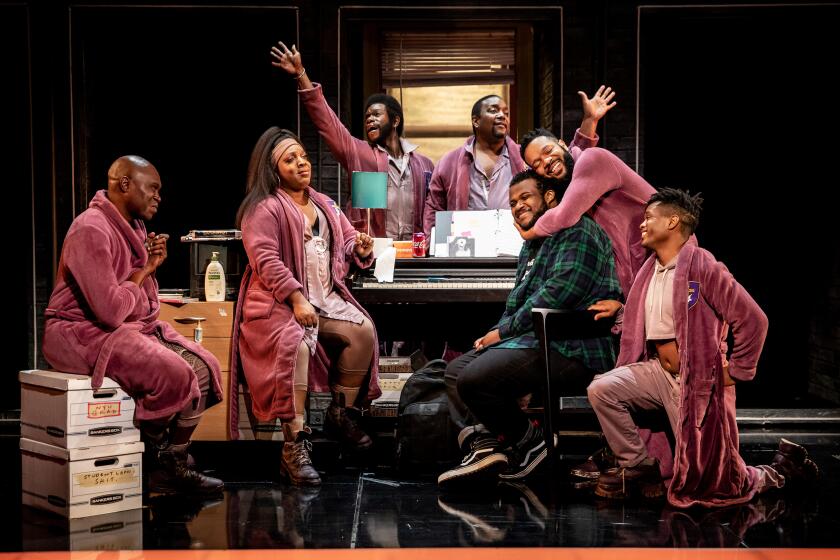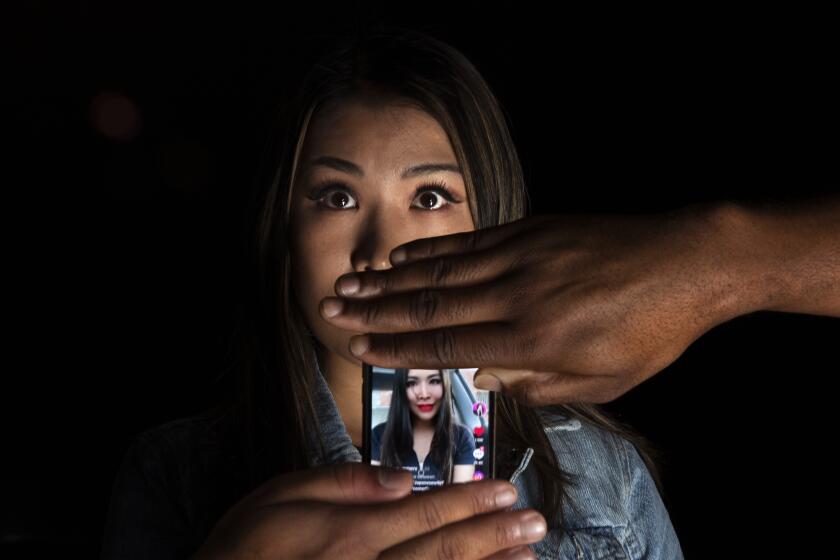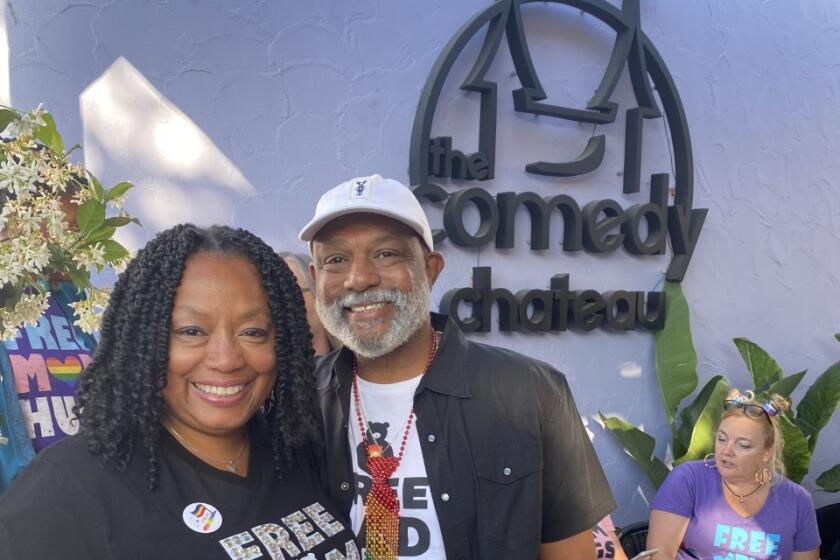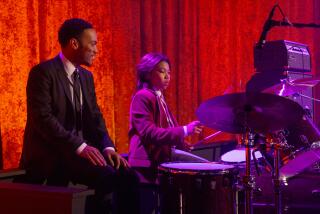How a Marvel musical parody gave Aidan Park the role of a lifetime: an Asian superhero leading man
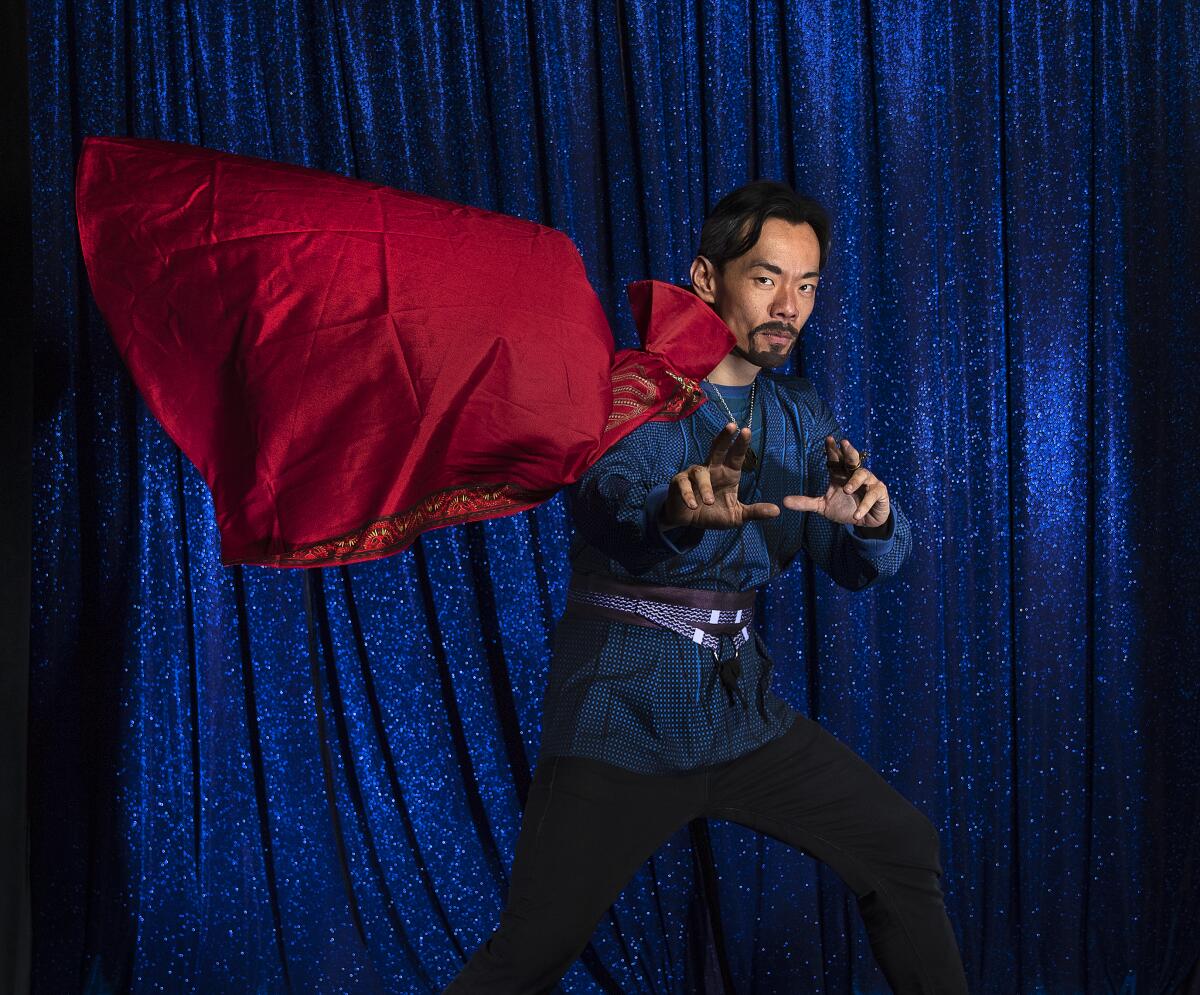
- Share via
It all started as a joke, which for stand-up comic Aidan Park seems natural.
He happened to be talking to the right people — in this case, Analisa Gutierrez at the Lyric Hyperion — when he learned about an opportunity to sing in a January musical event: “Saturday With Sondheim.”
“Can I do it?” He asked her jokingly.
“Sure,” he recalls her saying.
And just like that, Park was reintroduced to musical theater, something he’d given up on since 2013 because of the discrimination and lack of opportunity he encountered as an Asian man. Months later, he now dons a red cape and painted-on goatee for the leading role of Doctor Strange in the Lyric Hyperion’s “The Streaming-Verse of Madness: An Unauthorized Musical Parody.” The musical premiering July 7 means so much to Park, not only because he loves musical theater, but also because it shows a shift toward inclusion in the industry.
“I love singing!” Park says offhandedly, chuckling from the joyous memories stirred by the statement.
Before discovering musical theater, Park was a homeless 19-year-old with HIV and had no way to find work because he was without documents.
“Musical theater saved my life,” he says.
Park turned to community theater because he believed it was the only passion he could follow as an immigrant lacking legal status. His friend heard his singing and referred him to Richard Nickol, a voice teacher who sought to give Park lessons as long as he trained in empowerment with the Liberty Experience, a nonprofit that uses music to foster social/economic integration for immigrants.
Park, who has since become a citizen, took him up on his offer and pursued musical theater for 15 years before pivoting to stand-up comedy because he felt artistically unfulfilled in the art form and struggled to find roles that best fit him.
“It was heartbreaking to leave musical theater behind because it was a rescue for me in a huge way,” he says.
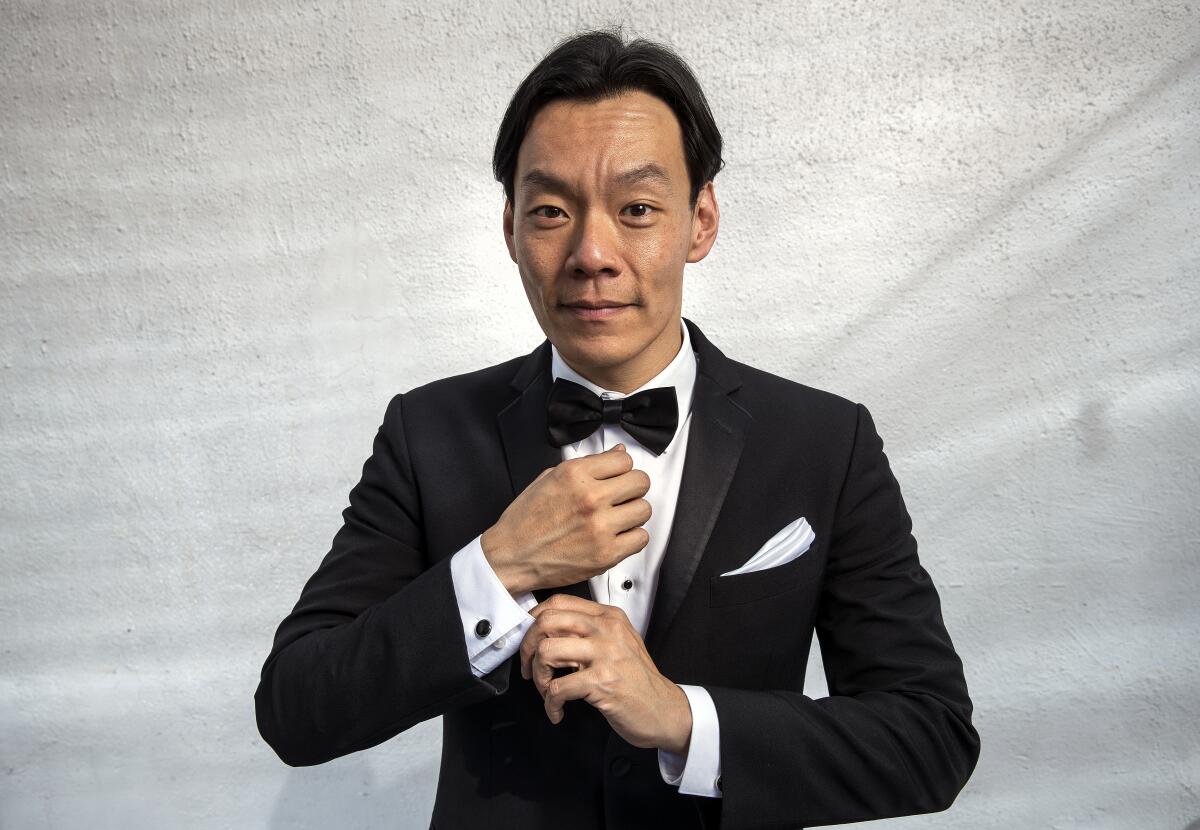
Park said he would get racially typecast, continually stuck doing productions of “Miss Saigon”: “I did nine of them because I’m an Asian guy who can sing.”
His appearance is what came between him and his dream role, he says.
“I was led to believe that if you don’t get the role, then it has to do with your talent, and it has nothing to do with your race. That was being sold to me by some of my teachers.”
Tall in stature and with an athletic build, Park looks antithetical to the Asian caricature desired in Hollywood, he says. He felt like an odd shape trying to fit a mold two sizes too small with a potential too shy of what he knew he was capable of.
He auditioned for roles in musicals such as “Grease” and “Bye Bye Birdie” and would get called back for leading roles, all the while knowing that they wouldn’t choose him for the lead because of his ethnicity.
“I could execute the role as far as what they needed technically, but ultimately, I would not get those roles,” he says. “And it was disheartening.”
Park turned to stand-up comedy because his personality and background were valued.
“Stand-up comedy is a venue where you’re celebrated for your experiences and uniqueness,” he says. “Whereas I feel like musical theater, sometimes you just have to fit into what their idea is.”
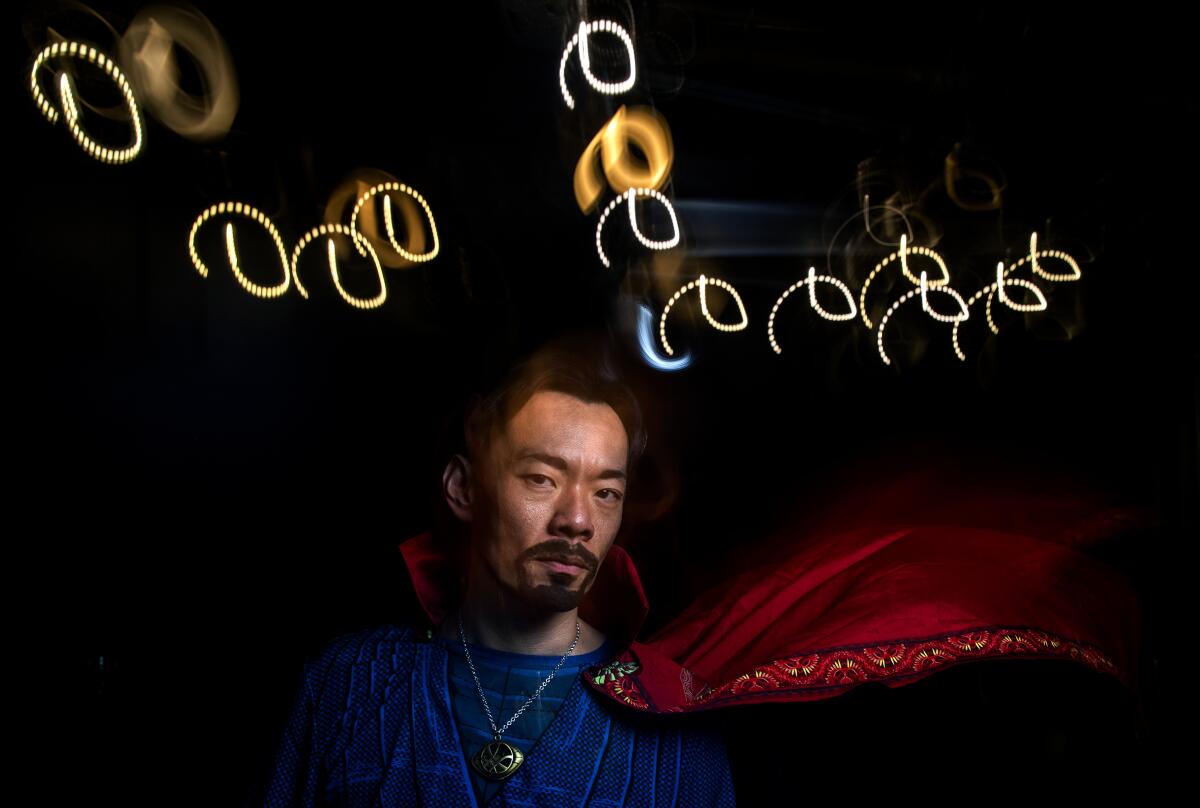
He has been successful as a stand-up comic, producing and performing for comedy clubs like the Laugh Factory, Hollywood Improv, the Comedy Store and the Icehouse. And he performed stand-up in an episode of Peacock’s “Comedy InvAsian.”
Things continued to change in May when Park went to New Jersey to do a comedy show with Music Mountain Theatre. He once again joked about performing in a musical with the company, and that led him to get cast in the leading role of Leo Bloom in the theater’s production of “The Producers.”
He says the casting shocked him because it showed “these people are now willing to give Asian guys front and center roles.”
“It makes me feel like maybe we did progress forward,” Park says. “Maybe there is an opportunity for me to actually work in this industry and not as background.”
He notes that having an Asian actor in a leading role on the stage is particularly important because of the history of Asian representation in media.
“Asian men are totally asexualized in Hollywood,” he says.
Asian characters are often portrayed in media as having no sexual prowess and are typically side characters that are there for comedic relief. A 2021 study by the Geena Davis Institute on Gender in Media titled “I Am Not a Fetish or Model Minority” found that about a third of Asian and Pacific Islander characters in the top 10 films from 2010 to 2019 fit at least one common API trope or stereotype. The study also found that over half of the representation fit the “model minority” trope while almost half were expected to be laughed at by audiences.
Park explains that it feels “super important” to see an Asian character take on a leading role like Doctor Strange. Recent depictions of Asian and Asian American superheroes include the TV series “Ms. Marvel” and the film “Shang-Chi and the Legend of the Ten Rings.”
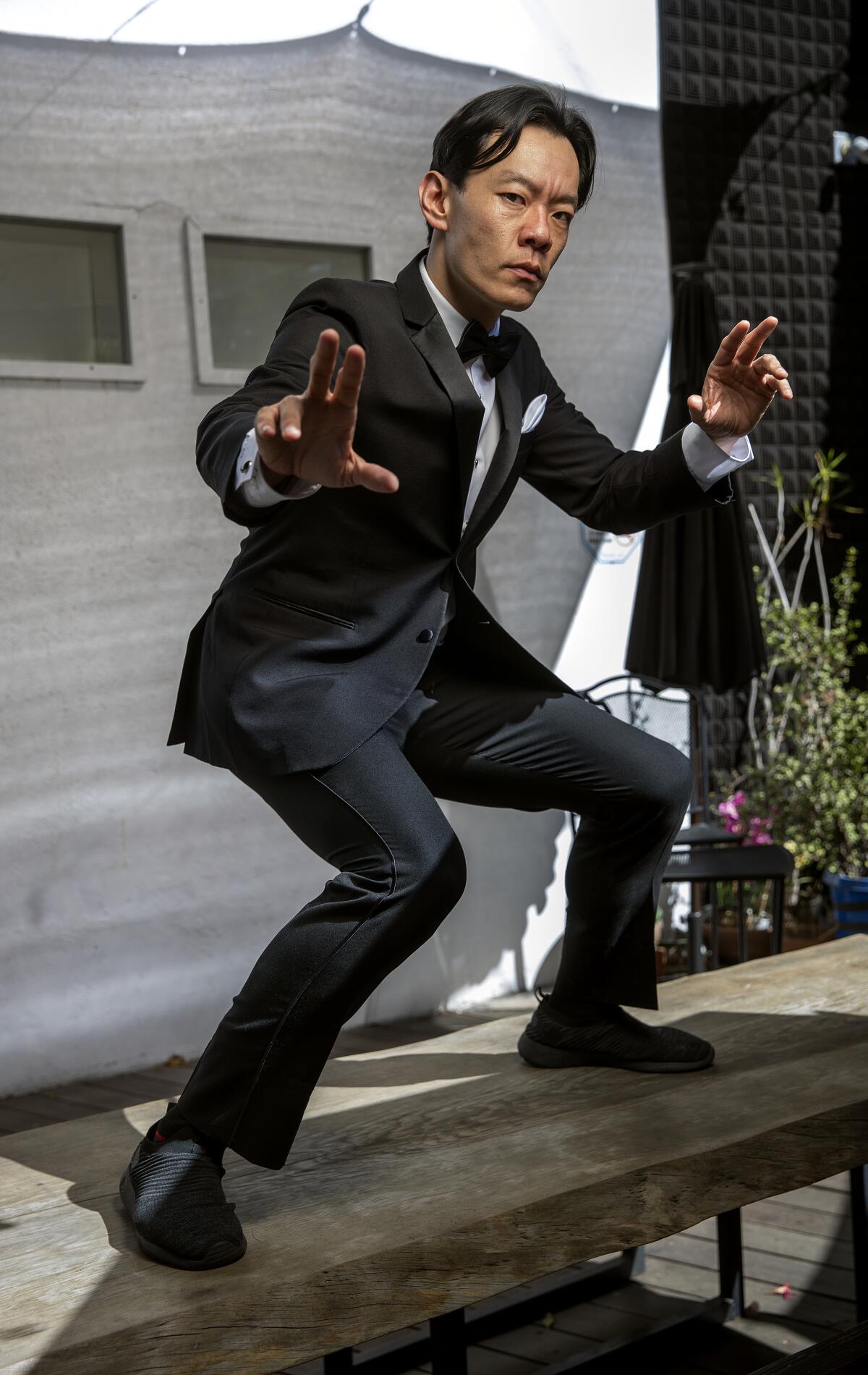
“I went so long thinking like, ‘Oh, well, no one’s gonna see me that way. So I better just give up,’” he says. “To see that there is more inclusion in 2022 — at least in my experience — I feel that we’re taking a step in the right direction and that I could participate in this art form that I love.”
After hearing Park sing in “Saturday With Sondheim,” Brandon Wood and Kaela Green, co-owners of the Lyric Hyperion, encouraged him to keep singing.
“The Lyric [Hyperion] people are so important to me because they really sparked a new interest in me,” Park says.
“The Streaming-Verse of Madness” is the first L.A. show he auditioned for since returning to musical theater. He initially went in to audition for Wong, the Asian sidekick and valet of Doctor Strange, but was called back for the leading man and was eventually cast.
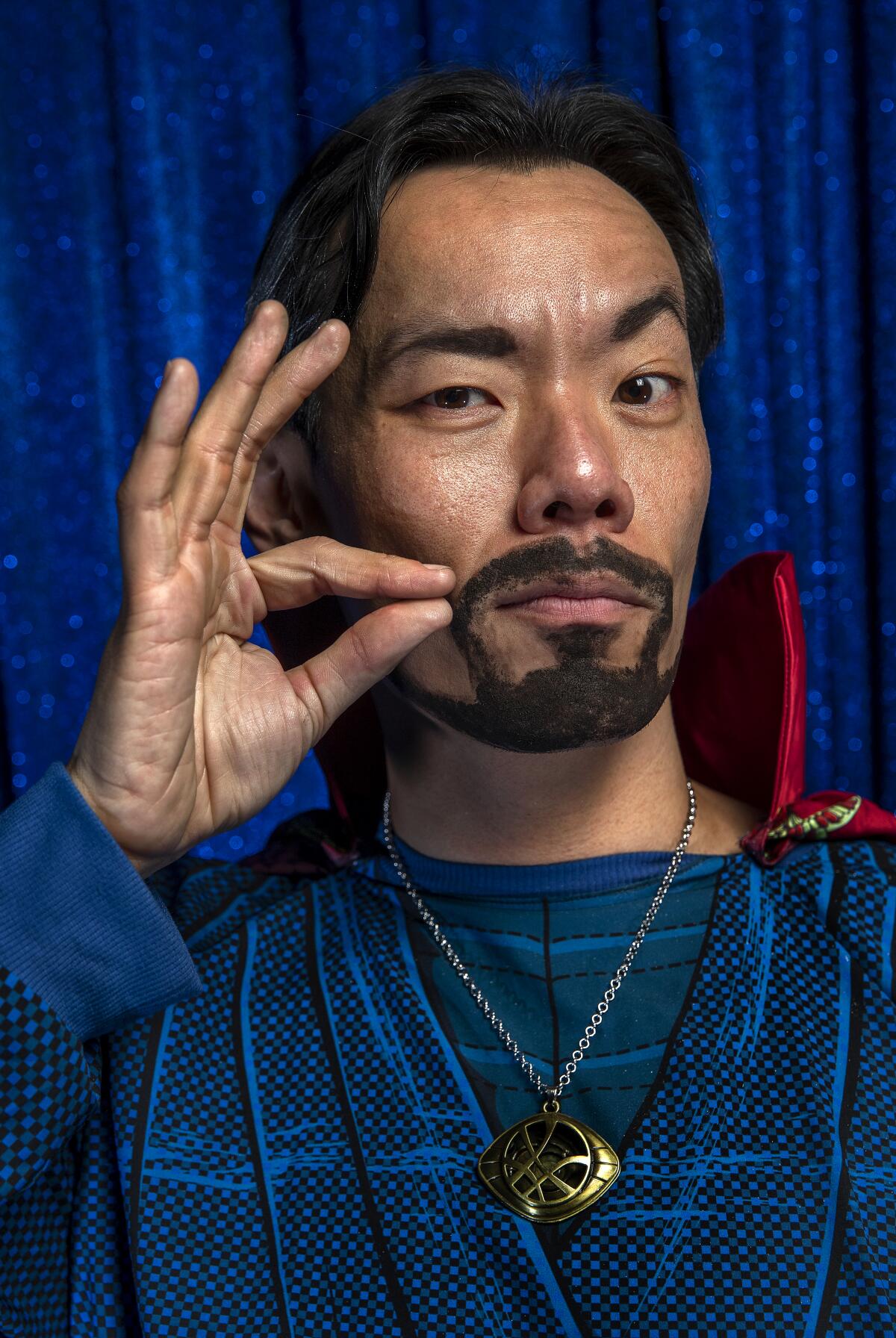
“It’s really cool to be able to play a leading character like that,” he says. “It’s kind of interesting because I never thought that I would be able to do this because I’m Asian.”
While he prepares to take the stage as a leading Marvel character, he also anticipates pushback from “purist” Marvel fans. When he got cast, he recalls thinking, “’Wow, they’re really taking a chance.’”
“It’s interesting to be able to step into the strength of who I know I can be,” he says.
He remembers struggling with his emotions on his journey in the arts. “The key, it turns out, is to embrace negative emotions, take the message and adjust your life in a way that brings you happiness,” he says.
Park’s journey back to the musical theater stage had its obstacles, many of which were out of his control and reflective of the exclusivity of the art form. He takes hold of his superpowers in the upcoming musical and wields them with newfound strength and trust in his talent as a performer.
“I studied acting for many years and I studied musical theater for many years, and I felt prohibited in my participation,” he says. “After these two things from Music Mountain Theatre and the Lyric Hyperion, I feel encouraged that I could be a participant beyond the scope of just being a caricature.”
More to Read
The biggest entertainment stories
Get our big stories about Hollywood, film, television, music, arts, culture and more right in your inbox as soon as they publish.
You may occasionally receive promotional content from the Los Angeles Times.
